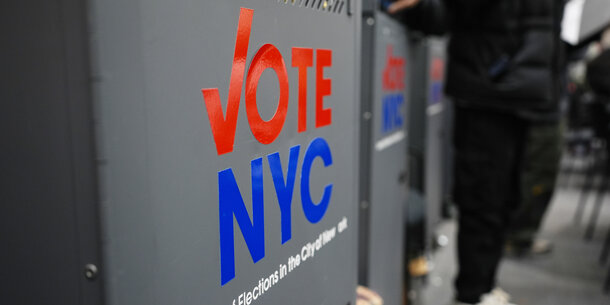Last week, a Senate committee began to debate and amend S. 1, the For the People Act. During the markup, Republican senators routinely mischaracterized the legislation. They said it would allow Democrats to “take over our democracy.” That it would allow “millions of people to vote illegally.” And that it would funnel taxpayer money to candidates running for office.
None of this is true. With all the disinformation and misinformation swirling around the bill, we’ve released an explainer that debunks them.
Some call the legislation a power grab by Democrats. It’s not. The reforms of the For the People Act, which passed the House in March as H.R. 1, are modeled off successful practices in red, blue, and purple states. The bill, for example, requires that every state adopt automatic voter registration (AVR). Nineteen states already have AVR, which registers eligible citizens to vote when they interact with a government agency like the department of motor vehicles. And redistricting reform has been pushed by Republican governors including Arnold Schwarzenegger and John Kasich.
The legislation also requires states to implement at least two weeks of early voting for federal elections and allow any eligible voter to cast their ballot by mail in federal elections. Mail voting was routinely advanced by Republicans (until very, very recently). And voters from both parties have long taken advantage of these conveniences at the same rate. As Republican legislatures attack the franchise, these reforms are vital to protecting the right to vote.
Sen. Ted Cruz, among others, insists that the For the People Act would let noncitizens and people under 18 vote. Once again, that’s false. The legislation doesn’t give noncitizens the right to vote and doesn’t weaken any law against it. It also doesn’t lower the voting age. All it does is allow 16– and 17-year-olds to preregister to vote, as more than a dozen states already do. Nobody can cast a ballot until they turn 18.
Finally, an old chestnut: the bill would give taxpayer money to candidates running for office. S. 1 does create a voluntary small donor matching system for federal elections, but it doesn’t rely on taxpayer money. Instead, the program is financed through a surcharge on corporate lawbreakers. In fact, the bill expressly forbids any use of taxpayer funds.
When you know the facts about the For the People Act, it shouldn’t be surprising that the legislation is extremely popular with Democratic, independent, and Republican voters. As a tape leaked to Jane Mayer of the New Yorker revealed, strategists briefing the Koch brothers’ political network ruefully concluded the bill is … well, very popular. Don’t try to attack its provisions, the strategists suggest. Rely instead on procedural obstruction. There’s a third strategy, evidently: tell lies. Of course, there’s a fourth approach: pass the bill.



